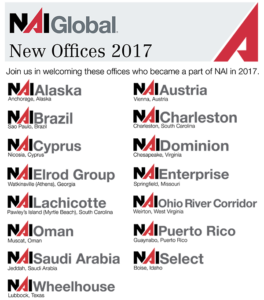Beyond Maintenance: How Strategic Property Management Drives Asset Value and Innovation
The role of property managers has transformed dramatically in the last decade. No longer confined to maintenance and tenant complaints, today’s property managers are strategic leaders driving asset value, tenant satisfaction, and operational efficiency. This evolution is driven by advancements in technology, the growing importance of sustainability, and a heightened focus on tenant experience.
As the commercial real estate (CRE) industry faces challenges like rising operational costs and fluctuating vacancy rates, effective property management offers a solution. According to Deloitte, property managers who adopt a forward-thinking approach increase asset value by up to 15%, making strategic property management an essential tool for staying competitive.
1. Prioritize Tenant Retention
Tenant retention is vital for profitability. The costs of replacing tenants, ranging from lost rental income to marketing and buildout expenses, can be staggering. According to the National Apartment Association, turnover costs for multifamily properties average $4,000 per unit.
Figure 1: Handshake solidifying a property management agreement
Alt text: Handshake solidifying a property management agreement
Strategies for Tenant Retention:
- Proactive Communication: Modern tenants expect timely updates and responsive management. Using tenant engagement platforms, such as mobile apps for surveys and notifications, ensures issues are resolved quickly.
- Community Building: Post-pandemic trends highlight the importance of community. Offering shared spaces like rooftop lounges or hosting networking events creates a sense of belonging and increases tenant satisfaction.
- Personalized Amenities: In 2024, top-performing properties offer amenities like package delivery hubs, EV charging stations, and pet-friendly environments tailored to tenant demographics.
Example:
Camden Property Trust, a leader in multifamily housing, reported a 6% increase in tenant retention rates after implementing pet-friendly policies and app-based concierge services. These innovations lowered turnover costs and improved operational efficiency.
2. Embrace Building Innovation
Smart building technologies are revolutionizing real estate, with the global smart building market projected to exceed $127 billion by 2025. Forward-thinking property managers are using these tools to reduce costs, streamline operations, and attract tech-savvy tenants.
Examples of Building Innovation:
- Smart Building Systems: Automated HVAC systems, occupancy sensors, and AI-powered energy optimization tools can reduce energy costs by 15-20%.
- Predictive Maintenance: IoT-enabled devices can identify potential system failures before they occur, minimizing downtime and repair expenses.
- Sustainable Features: Properties with solar panels, green roofs, and water-saving fixtures are not only environmentally friendly but also benefit from tax incentives and appeal to eco-conscious tenants.
Example:
In Chicago, The National, a historic commercial property, underwent a smart tech retrofit that included IoT energy meters and smart lighting. These upgrades reduced energy consumption by 30% annually, saving the owners over $500,000 while boosting tenant satisfaction.
3. Leverage Data and Technology for Efficiency
Relying on manual processes is no longer feasible. Today’s property managers use advanced software platforms to analyze key metrics, improve decision-making, and maximize property performance.
How to Use Data Effectively:
- Tenant Insights: Platforms like Entrata and Yardi analyze tenant behavior, providing actionable insights to optimize amenities and services.
- Operational Performance: Monitor KPIs such as energy usage, vacancy rates, and repair costs in real time using property management dashboards.
- Marketing ROI: Pinpoint the most effective advertising channels, from social media to search engine campaigns, to attract high-quality tenants.
Example:
Hilton Worldwide uses data-driven tools like its Connected Room platform to monitor energy usage and guest preferences, optimizing operational performance and reducing costs. Advanced analytics forecast demand, adjust staffing, and refine marketing campaigns for better targeting and retention. These strategies demonstrate how leveraging technology improves efficiency and enhances customer satisfaction in property management contexts.
4. Go Beyond Maintenance
Proactive and preventative maintenance is essential to maintaining asset value and reducing tenant complaints. The key is transitioning from reactive fixes to systems that predict and prevent issues.
Tips for Proactive Maintenance:
- Routine Inspections: Establish a quarterly inspection schedule to catch issues like leaks or HVAC inefficiencies early.
- Digital Maintenance Portals: Implement tenant-friendly apps for reporting issues and tracking resolution times.
- Vendor Management: Build long-term relationships with contractors to secure favorable rates and quick responses.
Example:
The AvalonBay Communities implemented a predictive maintenance system across its portfolio. As a result, they saw a 25% reduction in emergency repair costs and a 15% boost in tenant satisfaction scores.
5. Foster Collaboration Across Teams
Seamless collaboration among property management, leasing, and maintenance teams is vital for operational efficiency. Modern tools help align goals and streamline communication.
How to Promote Collaboration:
- Shared Platforms: Use integrated software like AppFolio or Buildium to provide real-time updates on leasing, maintenance, and tenant interactions.
- Team Meetings: Monthly strategy sessions allow for goal-setting and problem-solving across departments.
- Cross-Training: Teach employees about multiple functions to enhance teamwork and ensure continuity during absences.
Example:
Equity Residential credits its success to a centralized collaboration platform that integrates leasing, accounting, and maintenance. This system has reduced response times by 30% and improved tenant retention rates.
Why Strategic Property Management Matters in 2024
Property managers have become more than caretakers, they are innovators, strategists, and relationship builders. By prioritizing tenant retention, leveraging data, and adopting smart technologies, property managers can unlock greater operational efficiency and financial returns.
The Benefits of Strategic Management:
- Higher NOI: Increased efficiency translates directly to improved financial performance.
- Improved Retention: Personalized and proactive management keeps tenants longer.
- Asset Appreciation: Smart technologies and sustainable upgrades enhance property values.
Incorporating these strategies not only future proofs one’s assets but also positions one as a leader in the competitive real estate market.
Conclusion
The future of property management lies in innovation, data-driven insights, and a tenant-first approach. Whether it’s through implementing smart building technologies, fostering tenant loyalty, or leveraging analytics, these strategies can transform how properties are managed.
As a property manager, asset manager, or building operator, taking these steps can set one apart in the competitive real estate market, ensuring that one’s property succeeds both operationally and financially.














